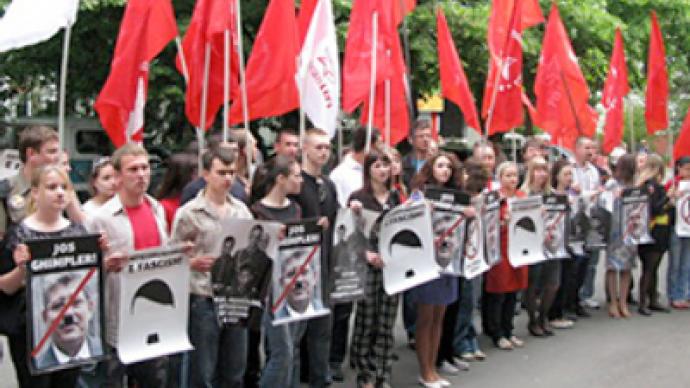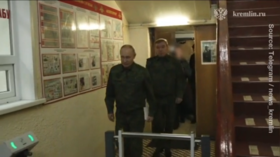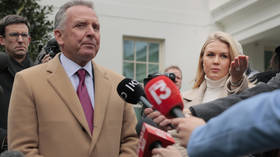State Duma outraged at Moldova “rewriting history”

Russia’s Duma has condemned the Moldovan interim president’s decision to name June 28 the Day of Soviet Occupation, calling it a political campaign against Moscow-Chisinau relations and an attempt to rewrite history.
The Russian lower house unilaterally adopted a statement condemning the June 24 decree signed by Moldova’s Acting President Mihai Ghimpu.
“Not only it is the act of a pre-planned political campaign aimed against Russian-Moldovan relations, but also a direct attempt to reconsider world history and justify the failure of the Modlovan leadership,” the lawmakers stated, Itar-Tass reports.
The deputies also noted that in recent years, the rewriting of history without approval from the people has become a common practice for leaders of post-Soviet states. “It is not difficult to guess that pseudo-historic interpretations of causes and results of the Second World War are used by such leaders in order to make time-serving decisions only in the interests of a political force which – for it own mercenary ends – betrays the history of its people,” the statement reads.
The Russian lawmakers dubbed the decision especially egregious as it was made “in the year when the entire world community marks the 65th anniversary of our common victory in the Great Patriotic War [WWII]”.
After some forces within the Alliance for European Integration – the ruling coalition – came to power in the republic, “Moldova has turned into a source of regional instability and unpredictability in politics, which could lead to irreparable consequences, the abandonment of universally-recognized democratic principles, and a return to neo-Fascism," Interfax agency quotes the Duma statement.
The decree – which caused heated debate in Russia and came under strong criticism by the Moldovan opposition – also demands that Russia immediately withdraws its troops from Moldova, where they are currently stationed on a peacekeeping mission in Transdniestr, the republic’s breakaway region.
The State Duma believes Ghimpu’s decision strikes a blow “at the possibility of resolving the Transdniestr conflict.”
However, the lawmakers underlined that, despite Ghimpu’s “attempt to set two brotherly peoples – the Russians and Moldovans – at loggerheads, our country will continue to take all the necessary measures to provide appropriate conditions for Moldovan citizens living and working in Russia.”
Moldova’s ruling coalition refuses to sack speaker
Meanwhile, passions flared up on Wednesday in Chisinau. The opposition Communist Party and United Moldova faction left the session hall of the parliament after the ruling coalition refused to put on the agenda the dismissal of Speaker Mihai Ghimpu over signing the controversial decree on marking the Soviet Occupation Day.
According to Vladimir Voronin, the former Moldovan President and the leader of Communists, "Every day of Ghimpu's stay in office makes Moldova's prospects bleaker." He vowed that his party will make efforts to dismiss the Alliance from power and “return Moldova to democracy and law," RIA Novosti writes.
However, Voronin believes, cited by Itar-Tass, that the ruling coalition will be delaying the dissolution of the parliament for as long as possible.
Earlier, the Communists asked the Democratic Party to support their proposal, but the democrats refused.
"We do not agree with extreme measures. We have many problems which need to be resolved,” the leader of the Democratic Party, Marian Lupu, said as quoted by RIA Novosti.
He added that it was the Communists fault that Ghimpu became acting president. “They should have supported the ruling coalition candidate at last year’s election,” Lupu said.
The signing of the decree was to coincide with the 70th anniversary of Soviet troops entering the territory of Bessarabia and Northern Bukovina – June 28, 1940. Romania, which had occupied the territories since 1918 –withdrew its troops without resistance and the region joined the Soviet Union. The Moldovan Soviet republic, including six Bessarabia districts as well as six areas from the left bank of the Dniestr, was established in August 1940.













